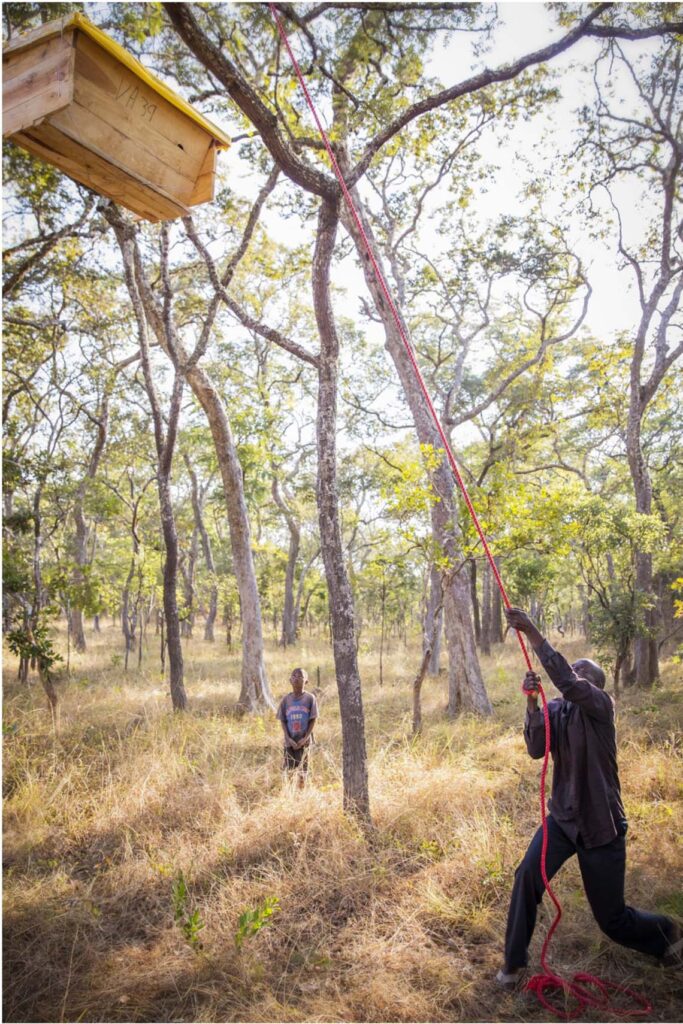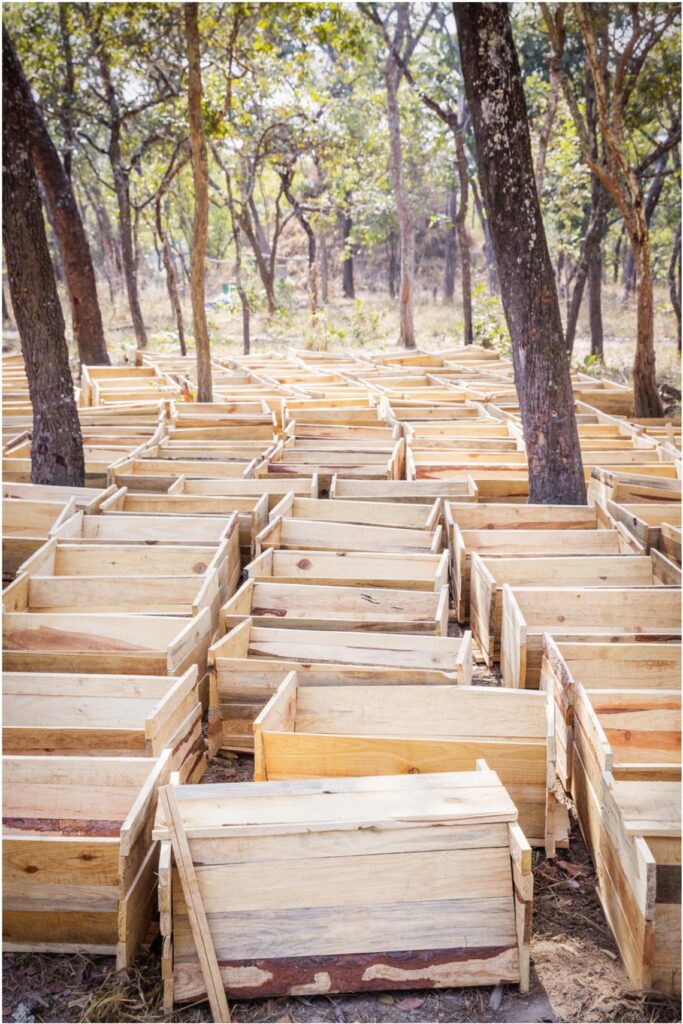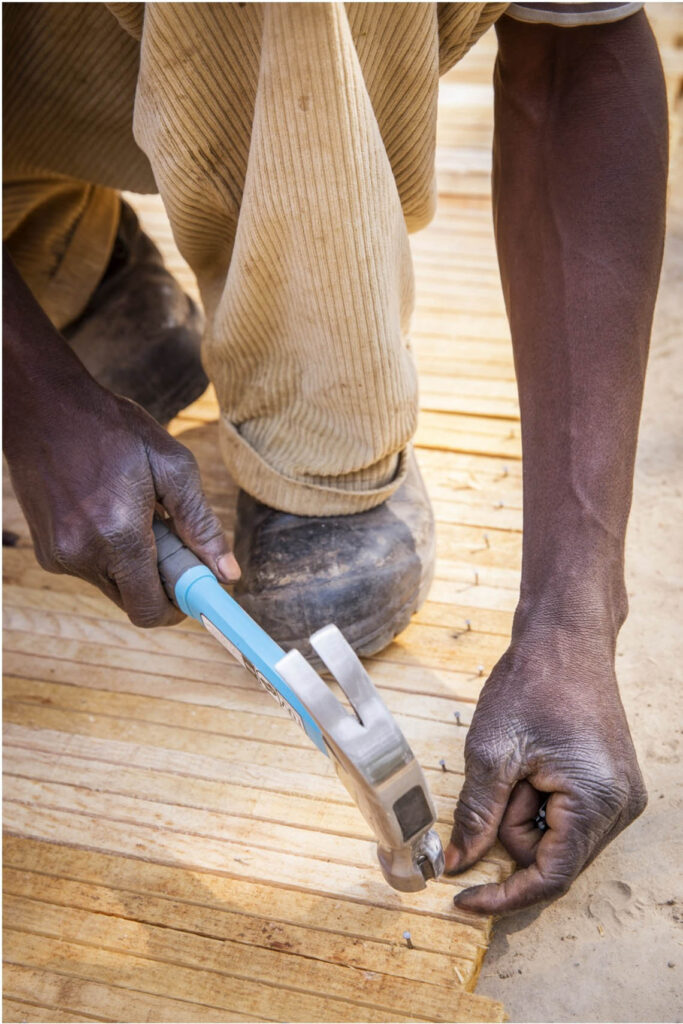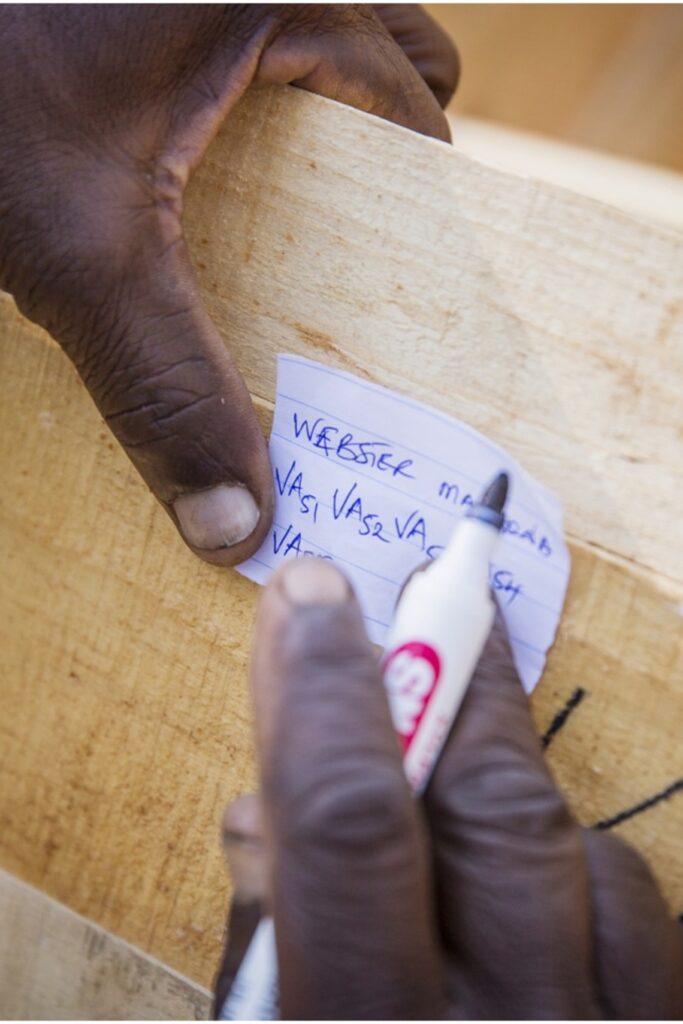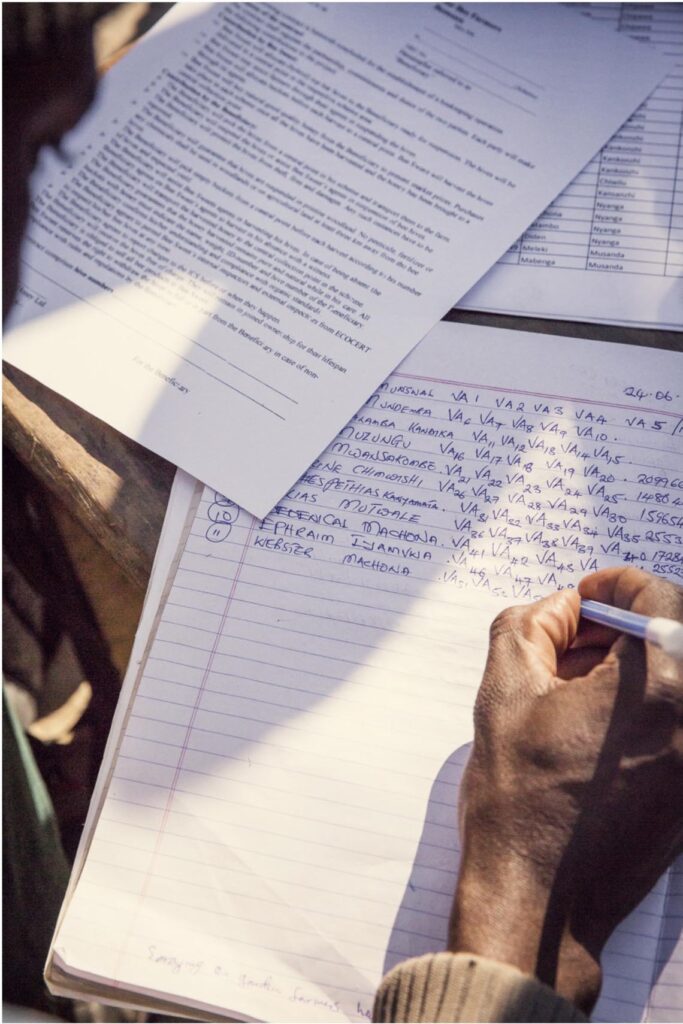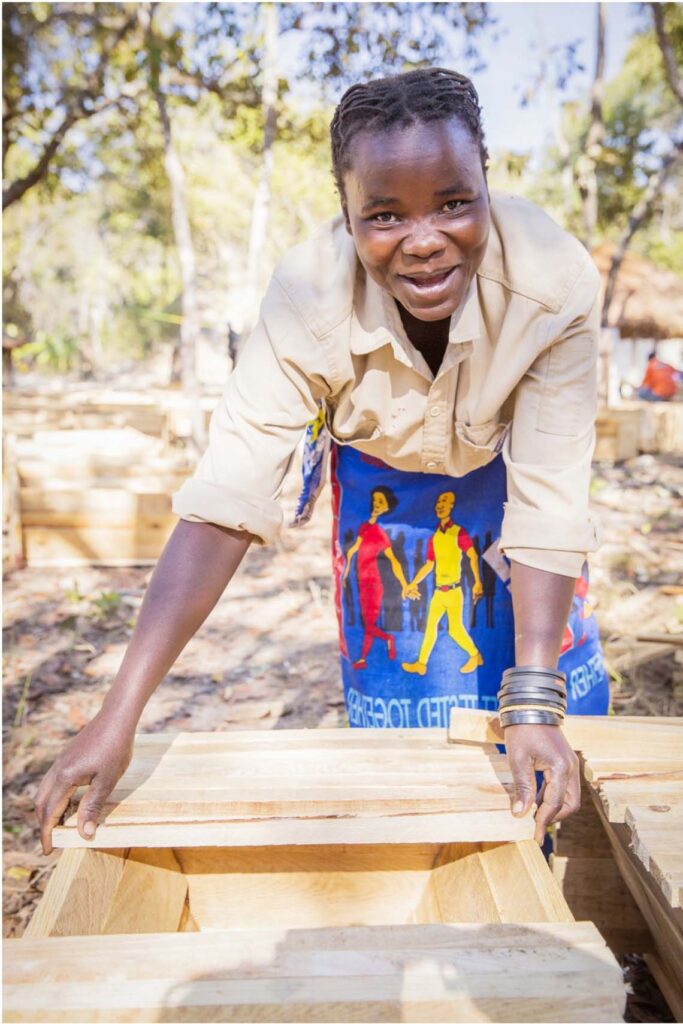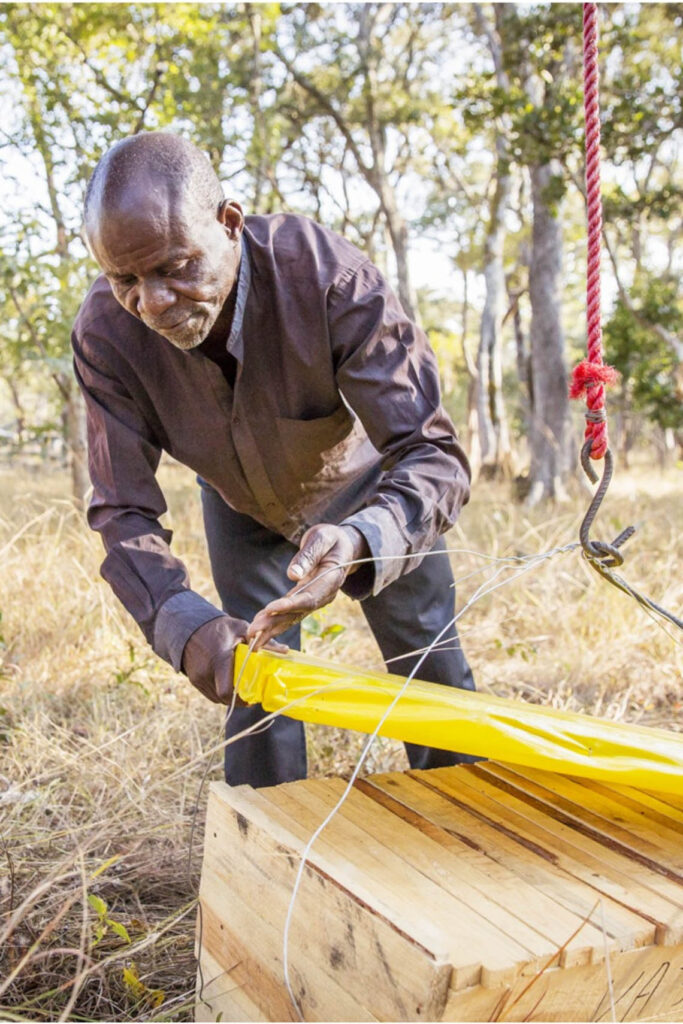Deep in the miombo forests of North-west Zambia, honeybees are changing peoples’ lives. Villagers are partnering with “Bee Sweet Honey”, a Zambian company that sells high-quality, certified organic honey and which is fast gaining acclaim in both local and overseas markets.
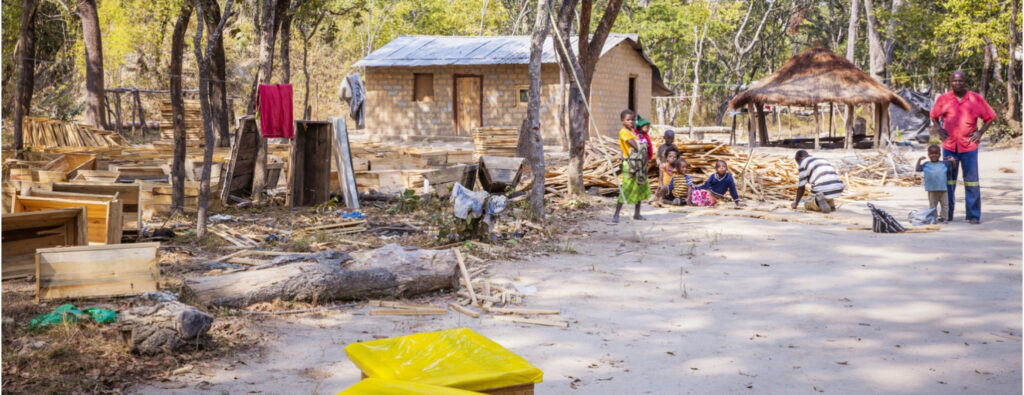
The villagers from Shinengene area were introduced to Bee Sweet by the not-for-profit Trident Foundation, which provides in-the-field support throughout the construction, distribution and hanging of the hives and also funded the initial supply of hives to community members.
Bee-Sweet harvest the honey twice yearly, so the farmer is only responsible for hoisting the hive, and for keeping it safe. They continue with their usual livelihoods and the payment from the hives is a welcome bonus for very little extra work. “The project has a sustainability aspect – it is long term with added benefits of securing a decent income for minimal input,” says Matthew Blair, Senior Supervisor at Trident’s Livelihoods Support Programme.
The hives are made on site, though materials are brought in.
25% of honey sales are donated back into the Trident Foundation for further community projects.

Gibson Kazika (above) is a Field Officer for the Trident Foundation. He is assisting with the implementation and monitoring of the beekeeping programme. He says that “beekeeping is the most sustainable programme for the people because it is long term and really benefits the farmers.” Here he helps new farmer Rachael Kanyonvu to register with the project.
Rachael Kanyonvu (below) is one of the 200 beneficiaries of the beekeeping scheme in the Shinengene area. She is excited to be picking up her hives for the first time.
North-west Zambia has some of the most sought after honey in the European Market.
Frank Mangisha is a mentor in the community, employed by Bee Sweet to construct, hang, bait, and assist with the harvest of the honey when the time comes. He is still able to continue with his other livelihoods and he also grows crops and keeps livestock. Though the bee-keeping project is still in its early stages, Mangisha is already seeing the benefits.
“It is a good project because it is like cultivating the soil – it gets better over a long time and it can help send our children to school.”
Frank Mangisha
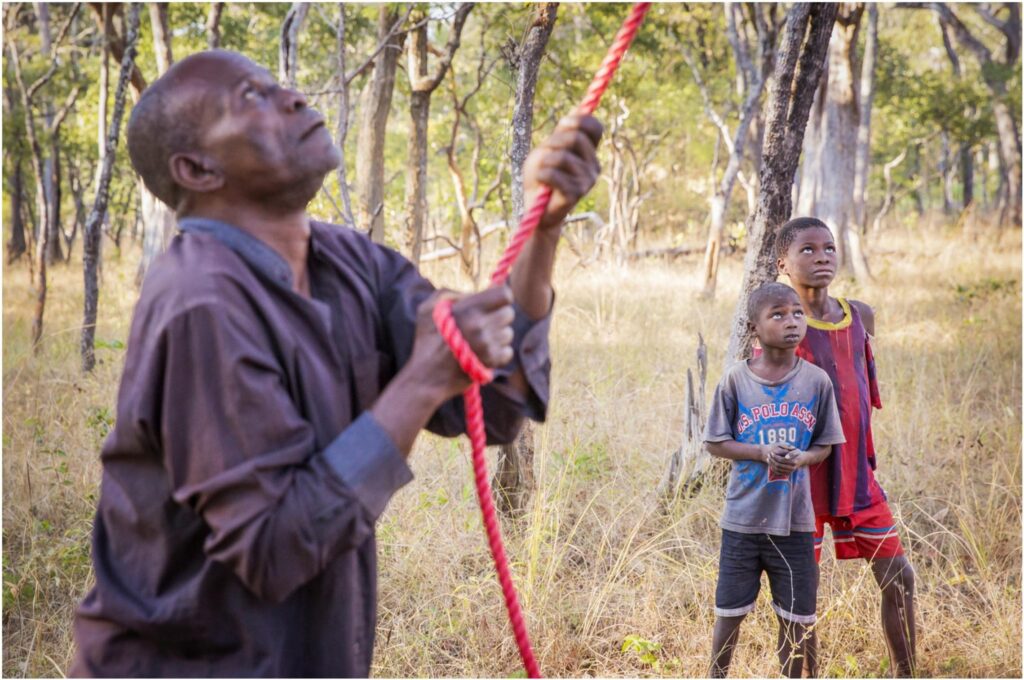
The hives are suspended in areas of pristine forest with no chemical presence. A wonderful advantage of the system is that it discourages deforestation, a problem which Zambia, and in particular Northwest Zambia is overwhelmed by.
“One of our main goals has been to protect the Lualaba Forest, and this has been a great tool for it,” says Blair.
“The bee hives offer the added advantage of protecting the environment. The bees need the trees to produce honey, and the farmers need to protect their hives from being burnt so they refrain or protect their areas from fires and charcoal making.”
